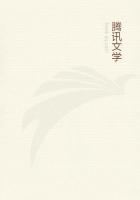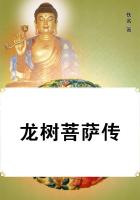" It may be very true that the will has as little to do with that pathological law by which the sight of distress awakens in my {402} bosom an emotion of pity, as with that other pathological law by which the sight of a red object impresses on my retina the sensation peculiar to that color;yet the will, though not the proximate, may have been the remote, and so the real cause both of the emotion and sensation notwithstanding.It may have been at the bidding of my will that, instead of hiding my self from my own flesh, I visited a scene of wretchedness, and entered within the confines, as it were, of the pathological influence, in virtue of which, after that the spectacle of suffering was seen, the compassion was unavoidable." He has very just remarks, propounded with great eloquence, on the final cause of the emotions.
His views on natural theology appeared first in the "Bridge water Treatise," on" The Adaptation of External Nature to the Moral and Intellectual Constitution of Man."The feeling of admiration excited was mingled with disappointment.The bulk was too great for the matter, and the work had the appearance of a hasty recooking of his old thoughts which were grand in themselves, but were not formed into a duly proportioned whole.His arguments and his illustrations have a much better form given them in his subsequently published work, "Natural Theology." He begins with a discussion of the <a priori> argument for the existence of God, and examines Samuel Clarke's "Demonstration." He objects that Clarke would make the test of a logical and mathematical truth to be also the test of a physical necessity in the existent state of actual nature, and that he confounds a logical with a physical impossibility.He turns to the <a posteriori> argument, but is obliged, without his being aware of it, to call in an <a priori> principle."The doctrine of innate ideas in the mind is totally different from the doctrine of innate tendencies in the mind, which tendencies may be undeveloped till the excitement of some occasion have manifested or brought them forth." He proceeds, as every one must, in constructing the argument from design, on the principle of cause and effect, but identifies that principle with what is surely a different thing, -- with the expectation of a uniformity in the succession of events.At this point he draws the distinction, which has been accepted by J.S.Mill, and has ever since been identified with Chalmers's name, between the laws of matter and the collocations of matter.It is from the {403} collocations of matter rather than the laws of matter that he draws his argument for the divine existence.
The distinction seems to be deep in the constitution of things, but might be better represented, perhaps, as the distinction between the properties of matter and the dispositions of matter, these dispositions manifesting design, and consequently intelligence.
He is most successful when he is arguing from the constitution of the human mind.He dwells with great fondness and force on the supremacy of conscience and the inherent pleasure of virtuous and the misery of vicious affections, and gives a powerful exposition of the law of habit.He has a clear, masterly, and eloquent exposition of Leibnitz's theory of the origin of evil, not positively adopting it, but using it as an hypothesis to obviate objections.Here and elsewhere he unfolds a very favorite principle, that hypotheses may be advanced in theology to answer objections even when they do not establish positive truth.The logical meaning of this principle is that the hypothesis sets aside the unlimited major premise necessary to establish the infidel objection.He seeks to answer the objection to prayer drawn from the uniformity and fixed character of the laws of nature by showing that we can trace the agencies of nature only a little way back, and that interferences may take place in that outer region which lies beyond the ken of man.It may be replied that, by just inference, we can trace the agencies far beyond the immediate inspection of man, and that we find them everywhere uniform.It might be wiser in these circumstances to trace up both the prayer and its answer to the pre-established harmony of things appointed by God.He closes his work by showing that natural theology is as useful in exhibiting man's needs, and thus preparing him to receive the remedial complement supplied by the Bible, as even in the positive truths which it has established.

